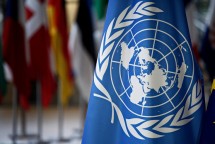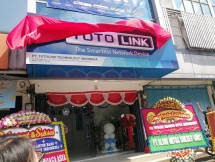The Endless Path of Agricultural Industrial Products
By : Arya Mandala And Aldo Bella Putra | Saturday, April 28 2018 - 18:30 IWST

Kelapa Sawit (agroindonesia)
INDUSTRY.co.id - Bogor, In the midst of changing global conditions, trade in agricultural products increasingly requires greater attention to meet domestic needs and penetrate foreign markets.
The problems that arise more complex only.
In the wake of the global financial crisis, trade sectors experiencing a slowdown in growth are no exception to agricultural products.
The trade value of the agricultural sector tends to be low.
In the last 15 years trade that has generally changed with the pattern of exports to be concentrated in some countries only.
Meanwhile, imports are more widespread in many countries and supply and demand changes occur.
Thus Mari Elka Pangestu started the national seminar on the theme of International Trade of Agricultural Products: Opportunities and Challenges held in mid-April at Botani Square, Bogor.
The former Minister of Trade of 2004-2011 also said that trade is currently vulnerable to rising protectionism in many countries and anti-globalization.
One example given is the policy applied by the President of the United States, Donald Trump for countries that have contributed the largest deficit for Uncle Sam's country.
Let's look at the importance of negotiations at the World Trade Organization (WTO) to reduce distortions and trade barriers.
He gave an example of one of the commodities of Indonesian palm oil which has non-tariff barriers in European countries, because it is considered unsustainable.
Equally important, the stabilization of domestic food prices observed is also uncontrollable.
Domestic stabilization in 2017 is problematic; one example with the retail price of super and medium rice in 2017 is still high.
To meet domestic food needs, currently according to practitioners, cannot say that Indonesia is anti import.
"Food import is an instrument of food policy. Food imports are allowed if domestic production cannot meet domestic demand, "said Achmad Suryana, Expert Researcher of the Center for Agriculture Socio Economic and Policy Studies (ICASEPS) of the Ministry of Agriculture.
Achmad also reminded that supply certainty is also a very important thing in the industry.
In addition to logistics related to the distribution of goods for easy access to farmers and can sell products to market quickly.
With these limits can be done, the main problem in the upstream should still be addressed.
"Indonesia must maintain average productivity or minimum productivity to ensure sustainable food," said Sri Nastiti Budianti, Head of the Center for Domestic Trade Policy, Ministry of Commerce.
To address these obstacles and challenges, according to Mari, need the role of technology to improve productivity, efficiency, and innovation.
In addition, the technology is considered to reduce the cost of production so that the price of the product will become more competitive.
Dr. Anas Point from Precision Indonesia sees imports in terms of positive activities. The exemplary point of Nutella with production reaches 350 thousand tons per year and its products are spread to 106 countries.
The raw materials in the production of Nutella are imports from Turkey, Malaysia, USA and Europe.
In addition, the majority of ASEAN countries such as Malaysia, Singapore, Thailand and Vietnam trade patterns by importing raw materials and intermediate goods and exporting value-added products.
Meanwhile Dr. Diana Chalil, CSSPO from the University of North Sumatra sees the issue of standard becoming one of the barriers to trade in agricultural products today.
Diana exemplifies issues related to certification in the CPO market, especially from the European Union. A total of 13 EU countries are requesting CSPO-certified CPO.
"Not all countries require certification, except for EU countries," Diana said.
In another session Dr. Amzul Rifin, Faculty of Economics and Management of IPB said that downstream policy should be done comprehensively through policies in both upstream and downstream sectors (production).
Amzul provides an example of a case study on the establishment of export duty on cocoa beans starting in 2010.
Initially this policy aims to ensure the availability of raw materials of cocoa beans in the country as well as to improve the competitiveness of Indonesian processed cocoa products.
In the last few periods, the export of processed cocoa products in Indonesia has indeed seen an increase.
However, due to the lack of domestic cocoa production, the cocoa processing industry is experiencing a shortage of raw materials from domestic and must import from other cocoa producer countries.
Dr. Ernawati Munadi, Indonesia-Australia Partnership Program for the Economy (PROSPERA) sees that agricultural products now face more non-tariff barriers compared to manufactured products.
From 2000-2015 the use of non-tariff barriers increased over the years as tariffs declined.
The United States imposes the most non-tariff barriers to agricultural products compared to other major destinations.
Dr. Tahlim Sudaryanto, Center for Agriculture Socio Economic and Policy at the Ministry of Agriculture, said that protectionist policies are often made by non-government buyers.
The strategy that needs to be done Indonesia today is not just loosening or negotiates the rules made by the buyer.
However, Indonesia should be able to meet the standardization request buyer.
Looking at the current development of the digital economy era. Hermanto Siregar, Professor of the Faculty of Economics and Management of IPB said that ICT advancement should play a role in improving efficiency both directly and indirectly.
The impact of the advancement of Information and Communication Technology among others is a business sector becomes more specialized, widening wage gap.
Read Also
Today's Industry

Sabtu, 14 September 2024 - 16:56 WIB
Essential Tips for Choosing Personal Health Insurance in the US
Choosing the right health insurance plan in the United States can be a complex task, especially with the variety of options available and the ever-changing landscape of healthcare policy. Here…

Sabtu, 14 September 2024 - 16:53 WIB
The Top 10 Insurance Companies in the US for 2024
In the ever-evolving landscape of insurance, selecting the right company can significantly impact your financial security and peace of mind.

Jumat, 13 September 2024 - 15:37 WIB
Why Airbnb Become Popular in 2024?
Airbnb fosters a more interactive experience between hosts and guests. Through direct messaging, guests can inquire about specific details, negotiate pricing, or clarify expectations, which…

Kamis, 15 Agustus 2024 - 14:26 WIB
Modena Officially Becomes a Member of the UN Global Compact
Commited to transforming towards sustainable business practices, Modena the global home appliance established over 60 years ago in Italy, officially became a member of the UN Globe Compact (UNGC)…

Kamis, 11 Juli 2024 - 22:08 WIB
Totolink Strengthens Commitment to Innovative and Reliable Network Solutions for Indonesia
Marking a strategic step, Totolink Indonesia proudly announces the enhancement of its head office in Jakarta, located at Harco Mangga Dua Blok E No.28, Sawah Besar, Central Jakarta.
















News Comment